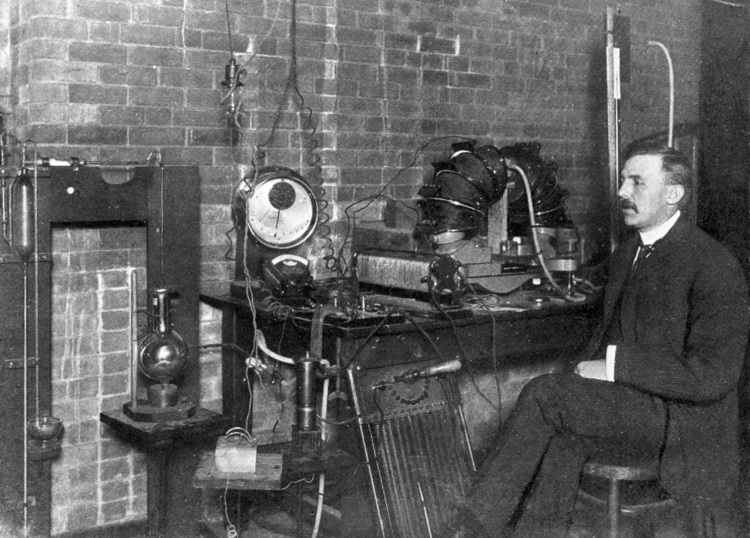The Crisis in Modern Physics (continued)
Poincaré does not develop these deductions consistently, nor is he essentially interested in the philosophical aspect of the question. It is dealt with in detail by the French writer on philosophical problems, Abel Rey, in his book The Physical Theory of the Modern Physicists (La théorie de la physique chez les physiciens contemporains, Paris, F. Alcan, 1907). True, the author himself is a positivist, i.e., a muddlehead and a semi-Machist, but in this case this is even a certain advantage, for he cannot be suspected of a desire to “slander” our Machists’ idol. Rey cannot be trusted when it comes to giving an exact philosophical definition of concepts and of materialism in particular, for Rey too is a professor, and as such is imbued with an utter contempt for the materialists (and distinguishes himself by utter ignorance of the epistemology of materialism). It goes without saying that a Marx or an Engels is absolutely non-existent for such “men of science”. But Rey summarises carefully and in general conscientiously the extremely abundant literature on the subject, not only French, but English and German as well (Ostwald and Mach in particular), so that we shall have frequent recourse to his work.
The attention of philosophers in general, says the author, and also of those who, for one reason or another, wish to criticise science in general, has now been particularly attracted towards physics. “In discussing the limits and value of physical knowledge, it is in effect the legitimacy of positive science, the possibility of knowing the object, that is criticised” (pp. i-ii). From the “crisis in modern physics” people hasten to draw sceptical conclusions (p. 14). Now, what is the essence of this crisis? During the first two-thirds of the nineteenth century the physicists agreed among themselves on everything essential. They believed in a purely mechanical explanation of nature: they assumed that physics is nothing but a more complicated mechanics, namely, a molecular mechanics. They differed only as to the methods used in reducing physics to mechanics and as to the details of the mechanism…. At present the spectacle presented by the physico-chemical sciences seems completely changed. Extreme disagreement has replaced general unanimity, and no longer does it only concern details, but leading and fundamental ideas. While it would be an exaggeration to say that each scientist has his own peculiar tendencies, it must nevertheless be noted that science, and especially physics, has, like art, its numerous schools, the conclusions of which often differ from, and sometimes are directly opposed and hostile to one another….
“From this one may judge the significance and scope of what has been called the crisis in modern physics.”
V.I.Lenin, Materialism and Empirio-criticism: Critical Comments on a Reactionary Philosophy, Progress Publishers, Moscow, 1975, 234-235
Part three/to be continued…
Full text at Marxists Internet Archive

